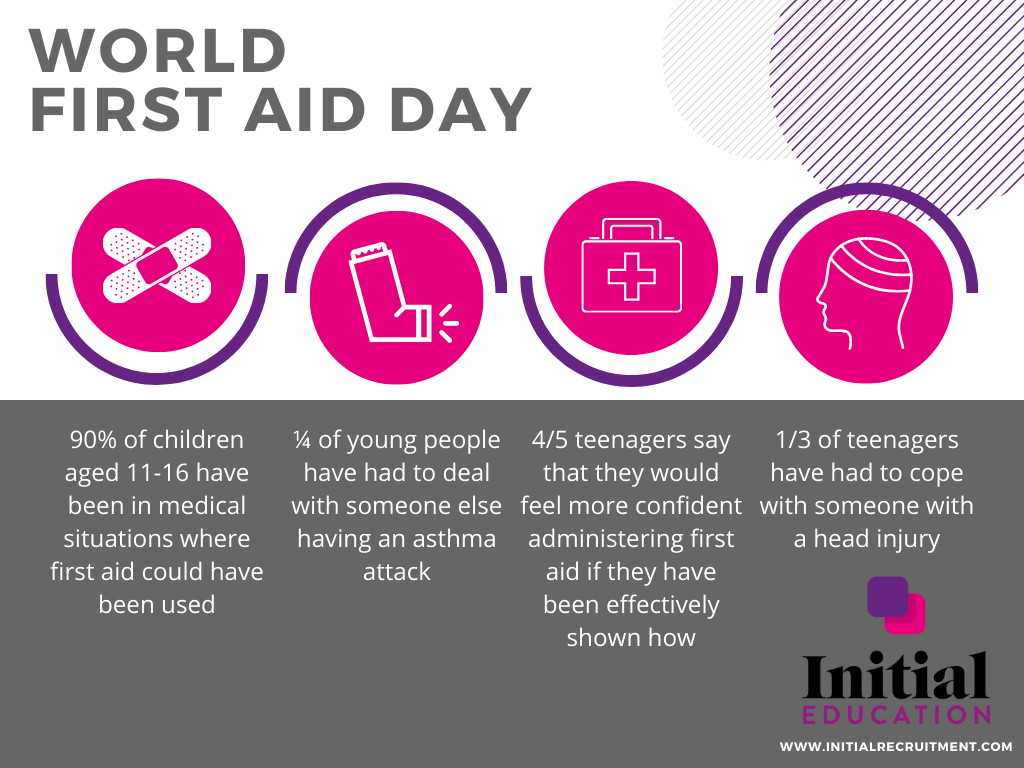Improving Pupil Participation in the Classroom
How to Improve Pupil Participation in The Classroom
Student engagement and pupil participation in the classroom are crucial to both learning and personal development. However this can be difficult to maintain, especially on the run up to Christmas. Focusing and engaging children in lessons proves challenging, as they readily shift their attention to what interests them when not fully absorbed in the current material. There’s nothing unusual about children zoning out in lessons. Education recruitment agency Initial Recruitment are here to provide some key insights on improving pupil participation in the classroom.

Don’t skip the warmup
You wouldn’t start a gym session without an appropriate warm up to get your muscles going, and a lesson is no different. Start the class with a warmup to get children engaged from the offset. Promote a pupil centred approach through question and answer sessions or mini competitions to create a buzz in the room. Once the warmup is over, children should be ready to sit down and focus on the lesson in front of them.
Create a Pupil-Focussed Learning Environment
When children are tired and begin to zone out during a lesson, its all too easy to slip into a teacher-focussed learning environment in which you simply stand in front of the class and talk. However, this is going to do nothing towards improving pupil participation in the classroom. Instead, use this as an opportunity to engage children in peer teaching, teamworking activities and collaborative projects. If you create an environment in which both teachers and students are working with AND learning from each other, you’ll soon begin to see you’ll spend less time managing student behaviour and more time witnessing exceptional results.
Embrace Different Learning Styles
Just as there’s no one size fits all approach to teaching, you will know that children learn and absorb information differently, whether they be visual, kinaesthetic, or aural learners. Take time to find out how each individual learns best and create tasks best suited to each individual.
What’s more, get to know your students’ extracurricular activities and hobbies in order to tailor your lesson planning. Incorporating these factors allows students to instantly connect with the message you are communicating. Simple tasks such as asking students to come up with a mind map of what they enjoy doing out of school will help harness this.
Teamwork makes the dreamwork
Enhance student interaction through group work and discussions within the lesson, ensuring that you monitor and guide children in order to ensure that it is effective. Encourage open-ended conversations that invite questions, respect everyone’s ideas, and work together to reach a final agreement. Giving children a change from solo work will allow them to share ideas and ensures active participation from all pupils in the classroom.
Avoid cliques by creating fluid teams based on individual strengths to enable primary school children to gather different strengths from those around them. Change up the groups every morning in order to allow those less confident to shine, avoiding the possibility of established roles within groups.
It is not only collaboration between pupils and class teachers that contribute to improved pupil participation in classrooms, it is imperative that special educational needs (SEN) teaching assistants collaborate effectively with the class teacher. SEN teaching assistants possess knowledge about their child’s specific needs and challenges, and they comprehend how to effectively promote development. Children with SEN needs are then able to fully maximise their education and achieve academic goals through utilising an adapted and tailored approach to learning.
Make Lessons Fun
Remind children that school can be fun and give them something to look forward to at school by creating engaging and educational quizzes instead of assessments, helping to ease stress and therefore generate more accurate insights into pupil performance. Using quizzes or collaborative assessments for instant evaluation as a teacher enables you to gather information in real-time, allowing you to promptly identify knowledge gaps and steer the direction of future lessons.
Keep pupil participation at a high by following formal assessments with physical activity or an educational game, eliminating ‘dead time’ within the classroom by keeping brains active and creating positive associations to assessments. Make every lesson an experience by introducing classroom games to assist young primary school children in enhancing their language an communication skills.
Give Children a Choice
Add value to lessons and encourage emotional engagement by introducing an element of choice to lessons. Indeed, children are much more likely to engage in a lesson if they feel they actively shaped its layout. Whilst expecting and allowing children to be entirely independent and responsible for their learning is possibly not the wisest choice, create options for visual, kinaesthetic an aural learners to facilitate the shift from a teacher focussed to student centred learning environment.
A fantastic way to introduce the element of choice in the classroom is to throw away the seating plan, allowing children to sit where they want in the classroom. Prevent cliques by ensuring that children cannot sit next to the same person for more than a week.

Teachers and teaching assistants must harness the three types of engagement to maximise pupil participation in the classroom; behavioural engagement, emotional engagement and cognitive engagement. Once students grasp these three factors, they will actively listen and absorb information from their surroundings, turning disruption and sinking into chairs into a thing of the past.
If you are an experienced teacher, ECT / NQT or teaching assistant, we’d love to hear how you improve pupil participation in the classroom. Share your stories on Facebook, LinkedIn or X (formerly known as Twitter) and don’t forget to tag us!
As specialists in primary education recruitment, if you are looking for a new role in education, we’d love to hear from you! Get in touch with education manager, Becky Oram, today to find out what teaching opportunities we have in Gloucestershire and Worcestershire.




